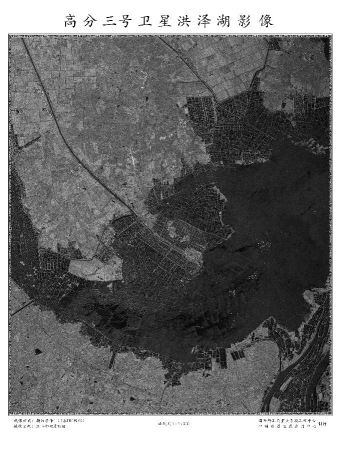China’s hi-res SAR imaging satellite put into use
China’s first high-resolution Synthetic Aperture Radar (SAR) satellite has passed all its in-orbit tests and is now operational, according to the State Administration of Science, Technology and Industry for National Defense on Monday.
 |
|
Released photo shows the image of east China’s Hongze Lake, which is received from China’s first high-resolution synthetic Aperture Radar (SAR) satellite on Aug. 15, 2016. (Xinhua/State Administration of Science, Technology and Industry for National Defense) |
The Gaofen-3 satellite, which is accurate to one meter in distance, was launched in August 2016.
Tong Xudong, a senior engineer with the administration, said the satellite covers the globe with an all-weather, 24-hour observation service and will be used for disaster prevention and reduction, ocean monitoring, and the protection of maritime rights.
Gaofen-3 is China’s first low orbit remote sensing satellite to have a long lifespan.
With 12 imaging modes, Gaofen-3 has the most imaging modes in the SAR imaging satellite family. The high-definition observation satellite is capable of switching freely between various imaging modes, taking wide pictures of both earth and bodies of water, and detailed photographs of specific areas.
Gaofen-3’s spatial resolution ranges from one meter to 500 meters and its largest viewing swath is 650 kilometers.
According to the administration, Gaofen-5 hyerspectrual satellite is planned to be launched in September 2017.
![Chinese police escorting Li Huabo (C), second of the list of China's '100 most wanted economic fugitives' after he arrived at Beijing Capital International Airport. May 9, 2015. [Photo / Xinhua] Chinese police escorting Li Huabo (C), second of the list of China's '100 most wanted economic fugitives' after he arrived at Beijing Capital International Airport. May 9, 2015. [Photo / Xinhua]](http://images.china.cn/attachement/jpg/site1007/20170123/f44d307d90cc19efdcad01.jpg)